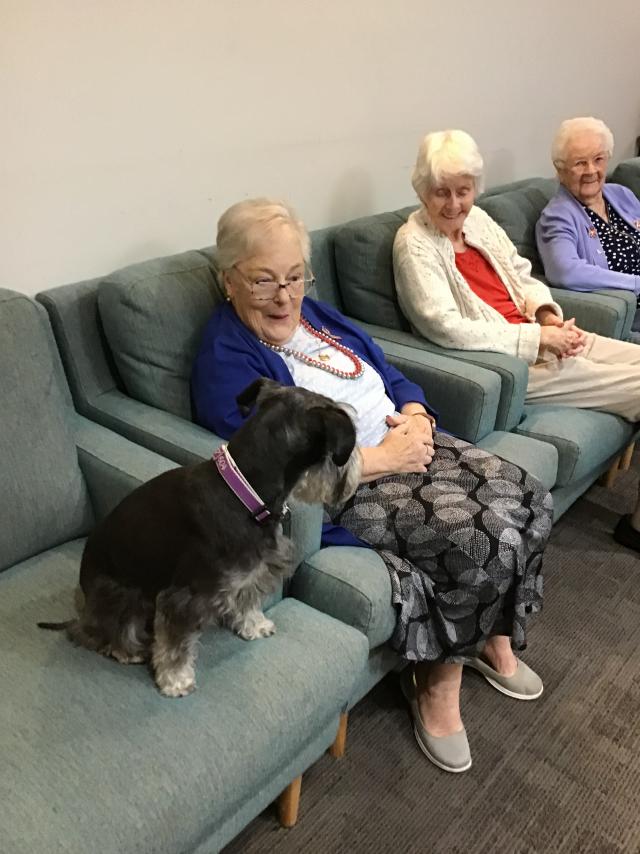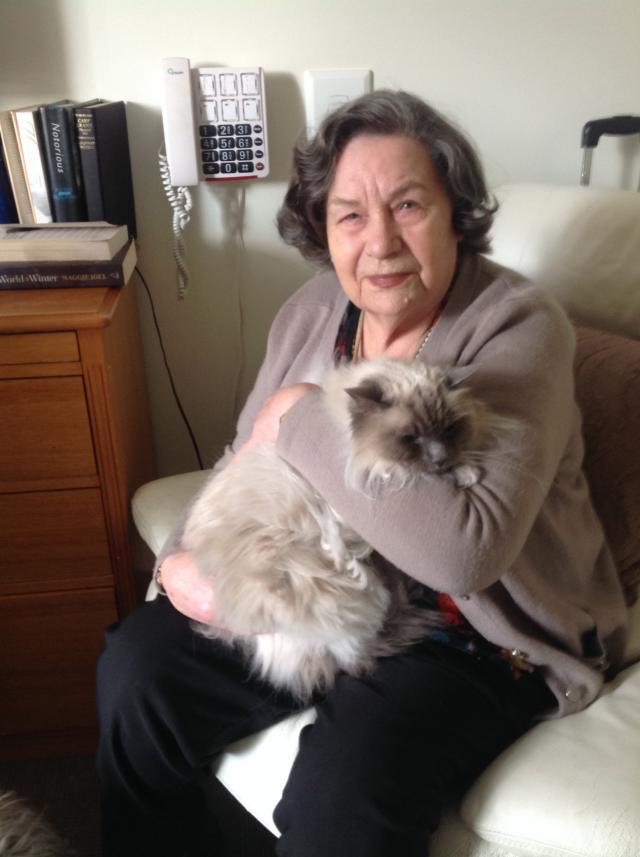The benefits of pet ownership are well documented but as many pet owners grow older or move into aged care accommodation, they are forced to say farewell to their much-loved companions.
Companion Animal Network (CAN) Australia wants the federal government to include pet support in its home care packages and is encouraging more residential care providers to welcome pets with their owners.
CAN chief executive officer Trish Ennis said less than 10 per cent of in-home care providers offered a pet-friendly service but sometimes support required was minimal such as occasional dog walking, grooming or taking them to the vet and pet owners may choose that care option over others available to them.
As Australia’s in-home aged care system is under Federal Government review CAN invites the public to complete a pet friendly aged care survey to garner support to preserve the bond between people and their beloved pets by keeping them together and providing the best health outcome for the animal and their owner.
“Many studies show caring for a pet can help to ease loneliness, relieve stress, anxiety and depression and provide unconditional love,“ Ms Ennis said.
“Sadly, many elderly pet owners who depend on in-home assisted living and the daily companionship of their animals, lack the government support they desperately need.
“Government funding to assist pet ownership for the elderly is absent.“
A Federal Government Service List Advisory Body will be considering pet care assistance/ pet support as part of the new federally funded In-Home Aged Care Program due to come into effect in July 2024.
The decision on this will likely be made by around mid-2023 and will be critically important for thousands of frail-aged people dependent on care at home and who rely on and benefit from daily pet companionship.
The results of CAN’s Pet Friendly Aged Care Survey aim to provide Federal Government decision-makers with valuable information about what older pet owners need and want in the new national In-Home Aged Care Program.
“Our aim is to support the elderly and their pets by talking to government about including pet support options in the Home Care Packages to prevent animals from being euthanised or surrendered to shelters and maximise the physical and emotional health of our pet-loving elderly,“ Ms Ennis said.
Older people moving into aged-care accommodation give up almost everything, taking only the necessities they need to move into a room in residential aged care and in addition must almost always say goodbye to their four-legged friends.
As they grieve deeply for their beloved pet left behind, the outcomes vary for the animals involved. Some pets are re-homed, others are surrendered to a shelter and some even euthanised, Ms Ennis said.
At least one residential care provider in Victoria, Lifeview, is proving pets can accompany their owners and is helping aged care residents live more active and vibrant lives with their beloved companion animals at their side.
“Pets are family, and many older people see their pet as a vital part of their life,” Lifeview CEO Samantha Jewell said. “Moving into aged care is a big enough change already without losing their beloved pet. Many aged care homes do not allow pets. At Lifeview, we believe in keeping people and their pets together.”
Ms Jewell said the facility had policies in place that required residents or a family member be able to look after their pet to a certain degree, such as feeding, changing their water, cleaning their cat’s litter tray and taking their dog for a walk. Pets remain in a resident’s room, taken out only on a leash, allaying fears other residents would trip over them. It also requires a family member be able to take the animal home when the resident can no longer care for them.
She said having their pets with them helped residents maintain their independence, kept them more agile and they deteriorated less quickly.
Lifeview also has visiting therapy pets and staff often bring in their pets as well, such as Shadow who comes in every day with residential manager Jess Lammeretz and is a big part of the home.
“Pets bring a lot of joy and more positivity to their owners as well as to the residents around them. They help residents socialise and settle in, easing their move into the home and making new friends. Pets also assist with reminiscence therapy, as residents recall the animals they had when they were a child and share stories and help reconnect,” Ms Jewell said.
CAN is working closely with Lifeview to help other residential care facilities adopt this positive pet-friendly change to enhance the lives of the residents and their beloved pets.
People are putting their lives on the line when they refuse to move into aged care because they can’t bring their pet with them.
“If people were allowed to keep their pets, aged care take-up by elderly people will increase and the number of pets being surrendered to animal shelters will decrease. Now is the time to understand the value of pets and develop policies that recognise their role.”
Australia CAN offers free resources, including pet-related policies, guidelines and documents, for aged care providers, support agencies and organisations to manage and care for pets in aged care settings.
To fill in the survey visit petfriendlyagedcare.com.au/surveys/
For more information visit petfriendlyagedcare.com.au or australiacan.org.au











